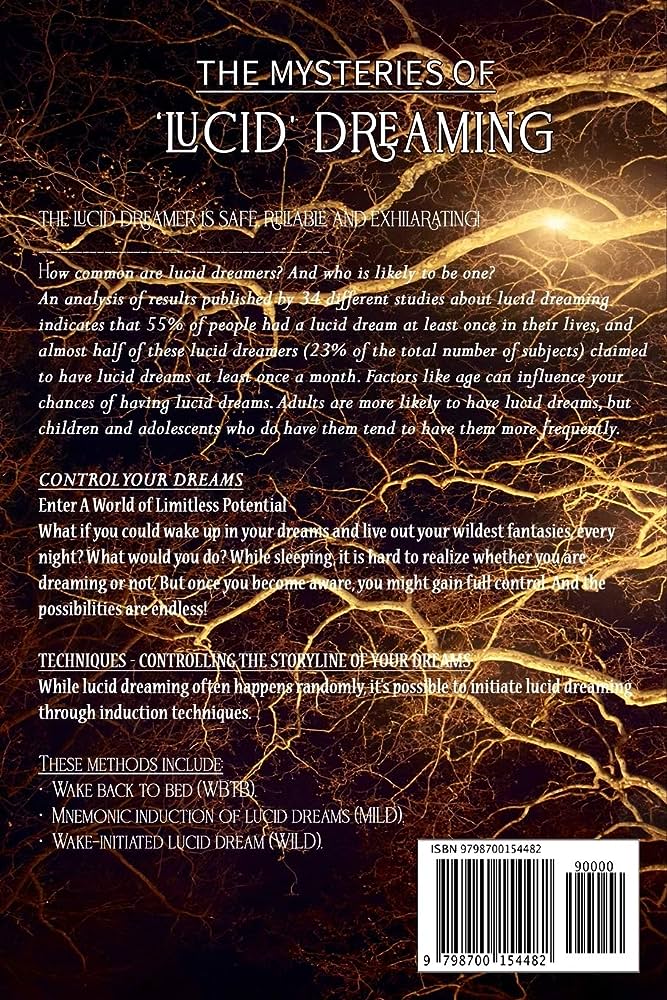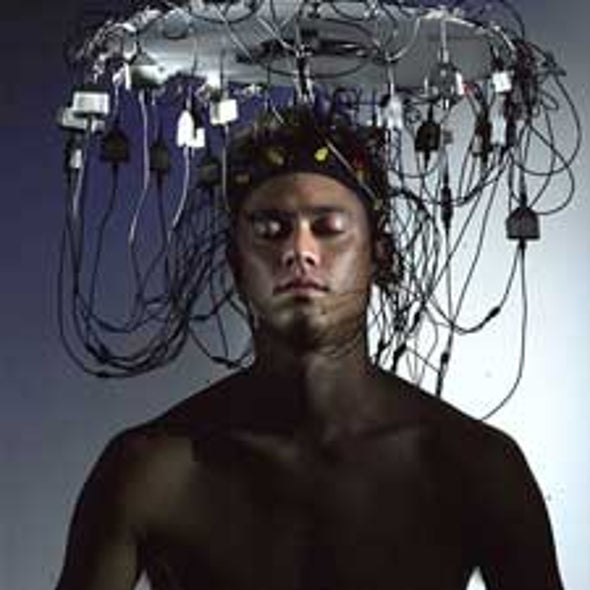Introduction to Lucid Dreaming
Lucid dreaming is a fascinating phenomenon where the dreamer becomes aware that they are dreaming and can exert control over their dream experience. In a lucid dream, the boundaries between imagination and reality blur, unlocking the potential for thrilling adventures, problem-solving, and self-discovery. Let’s delve into the history, science, and significance of lucid dreaming.
The Lucid Dreaming Experience
Lucid dreams offer a unique and immersive experience. The dreamer feels fully conscious and aware while navigating the dream world, often experiencing heightened senses and emotional intensity. There are different types of lucid dreams, ranging from brief moments of awareness to fully controlled, vivid dreams. The benefits of lucid dreaming include enhanced creativity, reduced anxiety, and improved self-confidence.
Unraveling the Mechanisms of Lucid Dreaming
Researchers have made significant progress in understanding the neuroscience behind lucid dreaming. The brain’s prefrontal cortex, responsible for self-awareness and decision-making, plays a crucial role in lucid dreams. Additionally, lucid dreaming is closely linked to Rapid Eye Movement (REM) sleep, a stage characterized by vivid dreams. Neurotransmitters such as acetylcholine and dopamine are also involved in facilitating lucid dream experiences.
Developing Lucid Dreaming Skills
Lucid dreaming is a skill that can be cultivated with practice. One of the first steps is to improve dream recall by keeping a dream journal. Regularly writing down dreams helps the dreamer become more attuned to their dream experiences. Performing reality checks throughout the day is another essential technique. By questioning reality during waking hours, this habit carries over into dreams, making it more likely for the dreamer to recognize when they are dreaming.
Inducing Lucid Dreams
There are various techniques for inducing lucid dreams. The Mnemonic Induction Technique (MILD) involves setting intentions before sleep and repeating a mantra like “I will have a lucid dream tonight.” Wake-Induced Lucid Dreams (WILD) require the dreamer to maintain awareness while transitioning from waking to dreaming. External stimuli like light and sound cues can also aid in triggering lucid dreams.
Overcoming Common Challenges
While lucid dreaming can be immensely rewarding, it comes with its own set of challenges. Dream fragmentation, where the dreamer struggles to maintain clarity, is common. Techniques like spinning or focusing on objects can stabilize the dream. Nightmares and fear may also arise during lucid dreams. By facing fears with courage and transforming them into positive experiences, the dreamer can regain control and turn nightmares into empowering adventures.
Enhancing Lucid Dreaming Experiences
Once lucid, dreamers can engage their senses in extraordinary ways. Touching surfaces, tasting imaginary food, and observing minute details can intensify the dream experience. Interacting with dream characters and exploring dreamscapes unlocks profound insights into the subconscious mind. Lucid dreams also provide a canvas for creative expression, allowing dreamers to compose music, paint masterpieces, and solve complex problems.
Real-Life Applications of Lucid Dreaming
Lucid dreaming is not limited to the dream world; it can positively impact waking life as well. In lucid dreams, individuals can practice skills and improve performance in real-life activities. Problem-solving and decision-making scenarios can be simulated, leading to increased confidence and efficacy in the waking world. Lucid dreaming also shows potential as a therapeutic tool, helping individuals process traumatic experiences and phobias.
Safety and Ethics of Lucid Dreaming
While lucid dreaming offers exciting possibilities, it is essential to maintain a sense of responsibility and ethics. Setting boundaries in lucid dreams helps prevent potential negative outcomes. Engaging in harmful or immoral behaviors in dreams can have a psychological impact on the dreamer’s waking life. Practicing lucid dreaming with mindfulness and respect is crucial for a positive experience.
Lucid Dreaming and Spiritual Exploration
Lucid dreaming has a long history in spiritual traditions and can serve as a tool for exploring the depths of consciousness. Many spiritual practitioners use lucid dreams to connect with their inner selves, explore philosophical questions, and experience states of transcendence. Lucid dreaming also offers a unique opportunity for individuals to experience unity and interconnectedness.
Beyond Lucid Dreaming: Exploring Consciousness
Lucid dreaming is a fascinating entry point into the broader exploration of consciousness. The similarities between lucid dreaming and other altered states of consciousness, such as meditation and psychedelic experiences, are increasingly recognized. These experiences offer valuable insights into the nature of the mind and reality itself, prompting further exploration of consciousness.
Conclusion
Lucid dreaming is a profound and transformative experience that allows individuals to unleash their creativity, confront fears, and embark on incredible journeys within the boundless landscape of the subconscious mind. With dedication and practice, anyone can unlock the power of lucid dreaming and harness its potential for personal growth and self-discovery.
FAQs
-
What is lucid dreaming, and how does it differ from regular dreaming?
Lucid dreaming is a state of consciousness where the dreamer is aware that they are dreaming while still inside the dream. In contrast, regular dreaming occurs when the dreamer is not conscious of the dream’s nature.
-
Can anyone learn to have lucid dreams, or is it a rare ability?

Lucid dreaming is a skill that can be learned with practice and dedication. While some individuals may have natural predispositions, virtually anyone can develop the ability to have lucid dreams.
-
Are there any risks associated with lucid dreaming?
Lucid dreaming is generally safe for most individuals. However, excessive lucid dreaming or engaging in harmful behaviors in dreams can have psychological consequences. Practicing lucid dreaming responsibly is essential to avoid potential risks.
-
Can lucid dreaming be used to address real-life problems and challenges?
Yes, lucid dreaming can be a valuable tool for problem-solving and decision-making. By simulating scenarios in lucid dreams, individuals can gain insights and practice solutions that can be applied to real-life challenges.
-
How do reality checks work, and how often should I perform them?
Reality checks involve questioning reality during waking hours to determine if you are dreaming or awake. By making this a habit, you increase the likelihood of performing reality checks in dreams, helping you become lucid. Performing reality checks several times a day is beneficial.

Welcome to my corner of the digital world. I am Evelyn Rivers, a passionate and dedicated professional psychologist with a profound fascination for the realm of dreams, their meanings, and their immense potential for emotional and spiritual healing. Through this website, I aim to illuminate the path to self-awareness, growth, and enlightenment, driven by the power of dreams and their significance in our lives. More about the author

